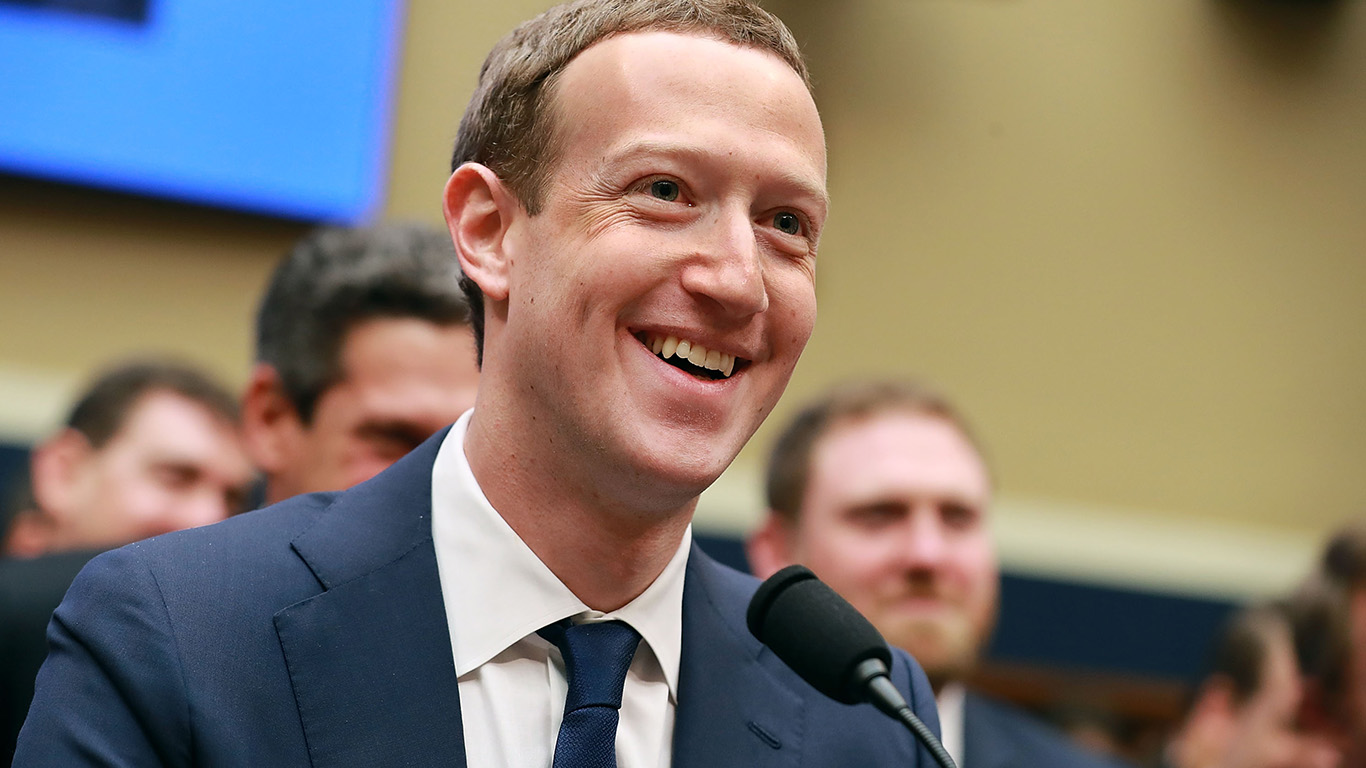
Meta Platforms Inc. (NASDAQ: META), the parent of Facebook, has been widely criticized for laying off 20,000 people. Founder and CEO Mark Zuckerberg has admitted he spent too many billions of dollars to move into businesses far flung from the advertising revenue Facebook produces. The layoffs have cheered inventors, no matter how brutal they are to the people involved. Meta’s shares are up 70% this year. By contrast, Amazon and Alphabet have done no better than the broader market. (Here are the industries laying off the most workers.)
[in-text-ad]
What has happened to create enthusiasm? First, Zuckerberg has created the impression that his margins can soar with fewer people and that, at the same time, he can roll back other expenses, mostly meant to develop new businesses.
Meta had almost 85,000 employees before the cuts, which puts the downsizing of 20,000 in context. It takes the headcount down to where it was in 2020.
Wall Street’s deep disappointment with Meta changed some recently, although revenue fell 4% in the most recent quarter from the same period a year ago. This brought revenue down to $32.1 billion. Net income dropped sharply, from $10.3 billion to $4.6 billion. Just as challenging, daily active users, a critical yardstick, rose only 4% yearly to 2 billion.
Facebook, once among the fastest-growing tech companies, is no longer growing. This lack of growth is compounded by the fact that the advertising market, which Facebook relies on, has been weak for the past several months. However, when Zuckerberg indicated future costs would drop sharply, investors saw a better future for the bottom line.
Zuckerberg described 2023 as his “year of efficiency.” His AI-driven metaverse will no longer get the oxygen it needs for substantial growth. It will be starved because he made a mistake in throwing money into projects few people seemed to care about.
Meta is an ad-driven business. After a wrong turn, it is one again. The ad market may be weak, but when that turns around, Zuckerberg has fewer expenses so he can take advantage of that improvement.
Thank you for reading! Have some feedback for us?
Contact the 24/7 Wall St. editorial team.





